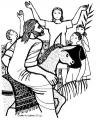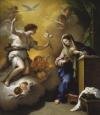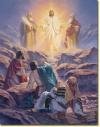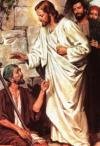
Commentary to the Third Sunday of Easter – Year B
There is the community gathered. There are eleven, there are the two disciples who returned from Emmaus, and this is what happens while this community is together. “While they were still speaking about this, he stood in their midst and said to them, ‘Peace be with you.’ ... Look at my hands and my feet, that it is I myself.



.jpg)
















